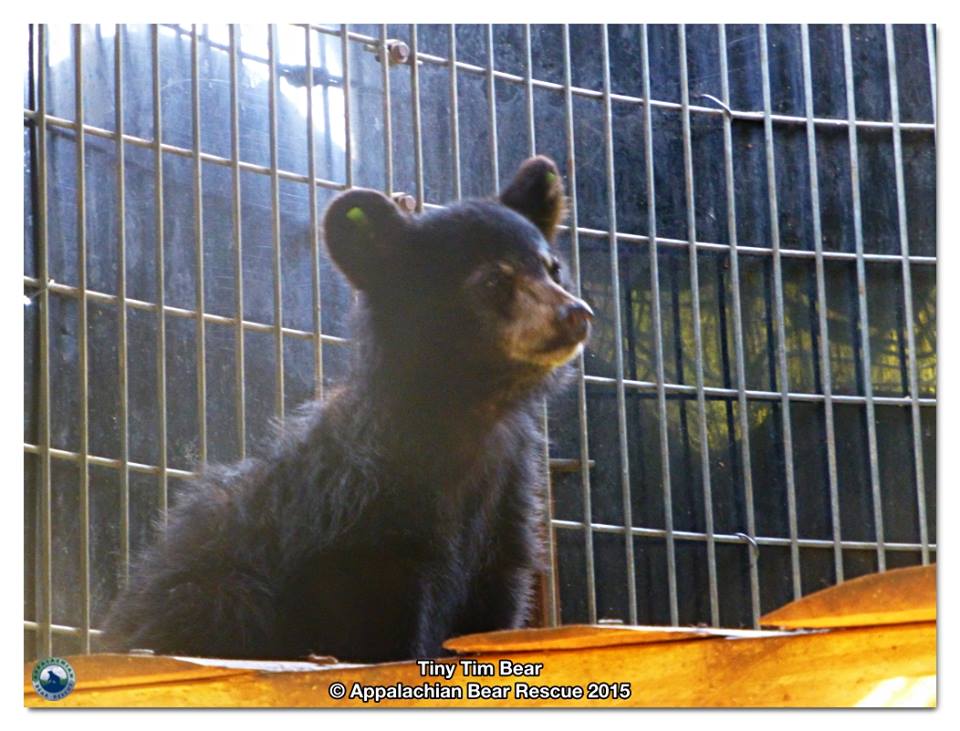Some of the “second wave,” smaller cubs have finished their medications and the curators judged that they were ready to be released into a Wild Enclosure. As they showed they were feeling better after ridding themselves of the parasites that were sapping their strength and robbing them of the nutrition from their food, the cubs began to show that confinement in a pen was becoming stressful. In the Wild Enclosure they have access to food thrown over the fence by “invisible” curators, and equally as important – trees! Here are some photos that show how some of the cubs reacted to the new space.
First to exit the acclimation pen was Tiny Tim. We see him first before he took the big step out.
Although he is probably the smallest of the cubs, he bravely stepped out into the Wild Enclosure.
Tucker Bear was next to leave the acclimation pen.
Changing his mind, he forages instead.
Tucker and Tiny Tim forage together. They find good food – acorns and pecans! The hard mast that they need and that was so hard to find in the wild this year.
Flora Bear stays put in the acclimation pen.
But after a few minutes, she joins the other two cubs outside.
We can see that these “second wave” cubs are much smaller than the big “first wave” cubs, although they are all the same age – about ten months old. These cubs are about the size that a well-fed six or seven month old cub would be in a good food year. Another thing you may notice is that their fur has a patchy, unkempt look. We will see dramatic changes in their appearance as they receive the good nutrition and bountiful food that the curators will provide.














